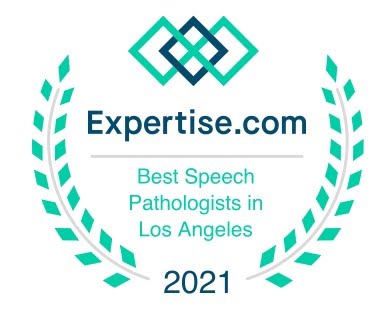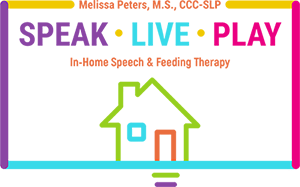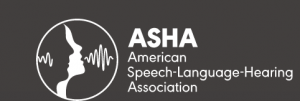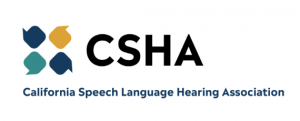
Play Los Angeles


”Welcome to Speak Live Play
SpeakLivePlay.com is a community-based organization in Los Angeles that offers speech and language therapy, cognitive, swallowing/feeding disorders that arise from injury, neurological conditions, brain abnormalities, and medical conditions like stroke.
On Speakliveplay.com, you can access occupational and speech therapy services for children, adults and tons of information on the nature of communicative disabilities and how to manage them.
What Is Speech Therapy?
Are you curious about speech therapy and what it entails? Speech therapy is a vital field focused on assessing and treating communication issues and speech disorders. This specialized care is provided by speech-language pathologists, often called speech therapists.
Speech therapy techniques are designed to enhance communication skills, whether improving articulation, engaging in language intervention activities, or employing tailored strategies to address specific speech or language disorders.
This therapy isn’t limited to a specific age group; it serves both children with developmental speech disorders and adults dealing with speech impairments due to injuries or illnesses, such as strokes or brain injuries.
Fundamentally, speech therapy strives to elevate your proficiency in articulating your ideas eloquently and grasping the words of others with clarity. It extends beyond mere conversation; it has the potential to enhance memory and foster problem-solving skills as well.
During your speech therapy journey, you’ll collaborate with a speech-language pathologist who will craft exercises and treatments tailored to your unique needs. Whether you require assistance in speaking and communicating or need support in processing and understanding language more effectively, speech therapy can be the key to your success.
With speech therapy, you can see improvements in various areas, including early language skills, voice usage, language comprehension, fluency, and the clarity and expressiveness of your communication. It’s a dynamic and personalized approach to help you unlock your full potential in speech and language.
- Speech Therapy Overview
- Speech Therapy for Age Groups
- Conditions and Types of Disorders We Treat
- Treatment Plans, Exercises, Duration, and Resources
- Speech Therapy Evaluation, Treatment, and Process
Role of Speech-Language Pathologists (SLPs)
Speech Language Pathologists play a crucial role in improving individuals’ lives, focusing on Speech Therapy and feeding therapy across all age groups. They work with premature infants on feeding and development, children on feeding and speech development, and adults on overall communication and swallowing skills. Our team comprises various specialists dedicated to helping your family. Whether it’s a newborn learning feeding skills, a child experiencing a speech delay, or an adult recovering from a stroke, our Speech Therapists are equipped to assist your loved one! We have experts in feeding therapy for newborns and medically complex children, addressing issues such as picky eating and feeding difficulties. Additionally, our speech therapists specialize in children’s speech and language development.
Purpose of Speech Therapy
- Improving Communication
- Improving social skills
- Improving understanding of language
- Improving the ability to eat, drink, and swallow across the lifespan
Techniques Used in Speech Therapy
We look at various factors when determining the type of therapy to be used during the session. Not all therapy works for every kiddo/client! Our skilled therapists will pick the best type of therapy for your child. Speech therapy typically involves many different types of therapy combined to perfect the perfect therapeutic plan for your child!
- Play-based therapy
- Activity-based therapy
- Structured therapy
Speech Therapy for Children
We offer speech therapy services for individuals of all ages, from infants to adults. Our experienced speech-language pathologists (SLPs) are skilled in addressing a variety of speech, language, and feeding disorders. With expertise in language intervention, articulation therapy, and oral-motor/feeding and swallowing therapy, our SLPs work closely with children one-on-one, in small groups, or a classroom setting. We understand that each child is unique, and our intake team will match you with a therapist who best meets your child’s specific needs. Whether it’s overcoming difficulties in communication, feeding disorders, or transitioning to solids, our dedicated team is here to guide and support your child’s journey towards their full communicative potential.
Settings (e.g., Classroom, One-on-One)
- In Office– We offer speech therapy sessions in our beautiful, modern office space in West Los Angeles.
- In-Home – We also offer in-home speech, feeding, and occupational therapy in the Los Angeles area.
Age-Appropriate Exercises and Activities
Our skilled speech and occupational therapists have specialty areas. Our intake team will match you up with a skilled therapist who best meets your child’s speech therapy or occupational therapy needs. We also understand that only some therapists may be the best fit for your child! Since you know your child best, we can offer different therapists if you feel the therapist you are working with may be a better fit for your child.
We offer speech, feeding, and occupational therapy to infants and adults.
Feeding Therapy For Children
What Are Feeding Disorders?
Dysphagia and oral feeding disorders refer to difficulties in eating and drinking, encompassing issues like chewing, swallowing, coughing, gagging, and food aversion. These challenges can greatly impact an individual’s ability to consume food and liquids effectively.
Who Gives Speech-Language Therapy?
Speech-language pathologists, often referred to as speech therapists, possess a deep understanding of human communication, its development, and the associated disorders. They evaluate speech, language, cognitive-communication, and oral/feeding/swallowing abilities, enabling them to identify issues and devise effective treatment strategies.
To become a speech-language pathologist, one must hold a minimum of a master’s degree, obtain state certification/licensure, and earn a certificate of clinical competency from the esteemed American Speech-Language-Hearing Association (ASHA). ASHA-certified SLPs have completed a national examination and fulfilled the requirements of an ASHA-accredited supervised clinical fellowship.
In certain cases, speech assistants provide support in delivering speech-language services. These individuals typically hold either a 2-year associate’s degree or a 4-year bachelor’s degree, working under the supervision of an SLP.
What Do SLPs Do?
In speech-language therapy, an SLP works with a child one-on-one, in a small group, or in a classroom to overcome problems.
Therapists use a variety of strategies, including:
- During language intervention activities, the speech-language pathologist (SLP) engages with the child through interactive play and conversation. They utilize various tools such as pictures, books, objects, and ongoing events to stimulate language development. The therapist may demonstrate proper vocabulary and grammar, incorporating repetition exercises to enhance language skills.
- Articulation therapy involves engaging children in play activities while the therapist models correct sounds and syllables in words and sentences. The play level is tailored to the child’s age and specific needs, ensuring appropriateness. During the therapy, the speech-language pathologist (SLP) guides the child in producing certain sounds, such as the “r” sound, and demonstrates tongue movements for precise articulation.
- Oral-motor/feeding and swallowing therapy involves a range of exercises conducted by a speech-language pathologist (SLP) to enhance the muscle strength in the mouth for eating, drinking, and swallowing. These exercises may include facial massage and various tongue, lip, and jaw exercises. Additionally, the SLP may introduce different food textures and temperatures to heighten a child’s oral awareness while eating and swallowing.
Our skilled feeding and swallowing therapists can address the following areas of concern:
- Bottle refusal
- Breastfeeding
- Dream feeding
- Difficulty meeting nutritional needs (bottle or breastfeeding volumes)
- Picky Eating
- Transitioning to solids
- Transitioning off of feeding tubes (NGT, PEG tube) to oral feeds
We work with children with a variety of complex medical diagnoses and children who are having trouble just with difficulty feeding. Melissa Yang, M.S., CCC-SLP, CLC, our owner and director, brings a wealth of expertise as a certified lactation counselor and neonatal therapist. With extensive experience managing feeding and swallowing disorders across all age groups, she is passionate about guiding your little ones towards their nutritional milestones.
Involvement of SLP
We pride ourselves on becoming your child’s communication partner and advocate! Melissa Yang, our CEO, always says, “Speech therapists often become part of your family!”. We work hard as speech therapists to help your child meet their full communicative potential. Being in your home or office allows us to develop and foster relationships with you and your family.
Strategies for Home Practice
Our experienced speech therapists will closely collaborate with you to develop a personalized home program, enabling your loved one to practice and reinforce skills learned during therapy. We strongly encourage parents and caregivers to join sessions whenever possible, fostering a collaborative and practical approach to your loved one’s progress. If you’re unable to join, no worries! After each session, we’ll send session notes to update you on what we worked on during therapy and provide guidance on how you can support your child at home to ensure their continued growth and success!
Speech Therapy for Adults
Assessment and Individualized Treatment
For adults seeking speech therapy, the journey commences with a comprehensive assessment that identifies individual communication and cognitive challenges. The true beauty of speech therapy lies in its remarkable personalization; your unique needs and goals are carefully considered, and a tailored treatment plan is crafted to address them.
Addressing Speech, Language, and Cognitive Communication
Speech therapy for adults covers a broad spectrum. Whether improving pronunciation, refining language skills, or enhancing cognitive communication abilities, the focus is on practical, real-world solutions. Adults may seek speech therapy for various reasons, from post-stroke recovery to managing speech disorders.
Swallowing Function Retraining for Relevant Cases
In some instances, adults may face difficulties with swallowing due to medical conditions or injuries. Speech therapists can assist in retraining and strengthening the muscles involved in the swallowing process. This not only improves safety but also enhances overall quality of life.
Types of Exercises
Here’s a glimpse into the kinds of exercises you can expect during speech therapy for adults:
Problem-Solving, Memory, and Organization:
If you want to sharpen your cognitive skills, speech therapy has you covered. From problem-solving to memory enhancement and better organization, these exercises promote mental agility and efficiency.
Conversational Tactics:
Effective communication isn’t just about words; it’s also about how you use them in conversation. Speech therapists can help you develop conversational tactics, such as turn-taking, maintaining eye contact, and interpreting social cues, to navigate social interactions with confidence.
Breathing Exercises for Resonance:
For those seeking to improve voice quality and resonance, breathing exercises are a vital component of adult speech therapy. These exercises strengthen your respiratory muscles, making a more precise and resonant speech.
Strengthening Oral Muscles:
From regaining articulatory precision to addressing swallowing issues, strengthening oral muscles is crucial in adult speech therapy. These exercises target the muscles responsible for speech and swallowing, enhancing their functionality.
Types of Speech Disorders
This section covers a range of speech therapy disorders and communication impairments. It includes resonance disorders that affect oral or nasal cavities. These receptive language disorders involve difficulty comprehending spoken information, expressive disorders that hinder expressing thoughts, cognitive-communication disorders impacting thinking and communication, aphasia that disrupts language comprehension and production, and dysarthria characterized by slurred speech due to weakened muscles. Seeking professional guidance and support is crucial for managing these conditions effectively.
Speech Disorders in Childhood
Speech therapy for children can occur in various settings, such as classrooms, small groups, or one-on-one sessions, depending on the specific speech disorder. The exercises and activities involved in speech therapy are tailored to your child’s individual needs, age, and disorder. During these therapy sessions, the speech-language pathologist (SLP) engages with your child through talking, playing, and utilizing books, pictures, and other objects to stimulate language development. Additionally, age-appropriate play effectively teaches your child the art of accuracy. The SLP provides strategies and homework for the child and the parent or caregiver to continue speech therapy at home. Enhancing your child’s language skills and speech development is the primary focus of these interactive and customized therapy sessions. Feel free to reach out if you have any questions or concerns.
Speech Impairments in Adults
Speech therapy for adults starts with an assessment to identify specific needs and determine the most effective treatment. Adults can benefit from speech therapy exercises that improve speech, language, and cognitive communication. Individuals facing swallowing difficulties due to injuries or medical conditions such as Parkinson’s disease or oral cancer may encounter challenges in this domain. In such situations, therapy may also encompass the retraining of swallowing function to address the issue effectively.
Exercises may include problem-solving, memory, and organization activities to enhance cognitive communication. Additionally, conversational tactics can be employed to improve social communication. Breathing exercises aim to enhance resonance, while exercises focusing on strengthening oral muscles are also beneficial.
Numerous resources are available if you’re interested in trying speech therapy exercises at home. These include speech therapy apps, language development games, toys (such as flip cards and flashcards), and workbooks. Explore these options to supplement your speech therapy journey. Remember, speech therapy can make a significant difference in improving communication skills and enhancing quality of life.
Common Speech and Language Disorders
Articulation Disorders:
People with articulation disorders struggle to produce specific word sounds. For instance, they may substitute one sound for another, like saying “wed” instead of “red” or “thith” instead of “this.” This speech disorder involves difficulties in correctly forming certain word sounds. Children with this disorder may drop, swap, distort, or add sounds to words. For example, instead of saying “this,” they might say “thith.”
Fluency Disorders:
Fluency disorders can disrupt the speed, flow, and rhythm of speech. Stuttering, characterized by interrupted or blocked speech, and cluttering, characterized by fast and merged speech, are examples of fluency disorders. People with stuttering may struggle with sound production, experience blocked or interrupted speech, or repeat parts or all words. Those with cluttering often babble, merging words. Enhancing speech fluency can benefit individuals experiencing these disorders.
Resonance Disorders:
Resonance disorders are health conditions that affect the oral or nasal cavities, potentially obstructing airflow and altering vibrations responsible for sound perception. These disorders can be caused by structural abnormalities in the mouth and nose, such as cleft palate or swollen tonsils. Factors like airflow blockage or incomplete closure of the velopharyngeal valve can also contribute to resonance disorders. Commonly associated with cleft palate, neurological disorders, and swollen tonsils, these conditions impact voice quality. Seek professional guidance to address resonance disorders for improved speech and overall well-being.
Receptive Disorders:
People with receptive language disorders struggle to comprehend and process spoken information. Common indicators include a limited vocabulary, difficulty following directions, and appearing disinterested during conversations. Receptive language disorder involves challenges in understanding and processing verbal communication, leading to a restricted vocabulary, difficulty following instructions, and disengagement in conversations. This condition can be associated with other language disorders, autism, hearing loss, or head injuries.
Expressive Disorders:
Expressive disorders can make it challenging for individuals to express their thoughts or find the right words. These disorders can be associated with stroke, developmental delays, or hearing loss. Expressive language disorder, specifically, refers to difficulties in conveying information accurately. If you have an expressive disorder, forming correct sentences may be problematic, including using incorrect verb tense. It is often linked to developmental impairments like Down syndrome or hearing loss, as well as head trauma or certain medical conditions. Enhancing communication and seeking support is crucial for those affected by expressive disorders.
Cognitive-Communication Disorders:
If the area of your brain responsible for thinking is damaged, it can hinder communication. Cognitive communication disorders encompass listening, speaking, memory, and problem-solving difficulties. These disorders arise from brain injuries, strokes, abnormal brain development, or certain neurological conditions. Enhancing memory and problem-solving skills and improving speaking and listening abilities are crucial for overcoming cognitive-communication disorders.
Aphasia:
Aasia is a challenging communication disorder that disrupts a person’s capacity to comprehend, articulate, write, and read language effectively. It is typically caused by an injury or stroke that damages the language-processing area of the brain. While stroke is the primary cause, other brain disorders can also result in aphasia. This condition hampers an individual’s capacity to communicate and comprehend others. A general audience must understand that aphasia can be challenging, but with support and therapy, improvement is possible. Explore more about aphasia and its management to foster better understanding.
Dysarthria:
Dysarthria is a speech disorder characterized by slow or slurred speech caused by weakened muscles that control speech. It is commonly associated with nervous system disorders like multiple sclerosis (M.S.), amyotrophic lateral sclerosis (ALS), and stroke. This condition affects the ability to control the facial, throat, and tongue muscles used for speech. Learn more about what causes dysarthria and its impact on speech.
Exercises and Activities
Speech therapy activities include tongue and mouth exercises, facial movements, reading out loud, and playing word games. These exercises and activities can strengthen speech and language skills, improve coordination between the brain and mouth, enhance motor skills, and boost cognitive function. Incorporating these activities into your routine can provide lasting benefits for individuals of all ages.
Treatment Plans Based on Disorder Type
Speech therapy for children involves engaging in play, such as sequencing activities or language-based board games. On the other hand, adults focus on developing or rebuilding specific skills, like enhancing coordination between the brain and mouth. Let’s explore some examples of speech therapy activities that can make a significant impact:
- Tongue and mouth exercises: Strengthen your mouth and tongue through exercises and motions prescribed by your speech therapist. These activities are designed to train your tongue to move in coordinated patterns.
- Facial movements: Enhance motor skills by controlling facial expressions. Smile, pucker your lips, and relax your face as your therapist recommends.
- Reading out loud: Strengthen the connection between the brain and mouth by reading aloud, mainly if your speech disorder affects proper mouth and tongue movement.
- Playing word games: Boost cognitive function and improve thinking skills through memory games, word searches, and crossword puzzles. Studies have revealed the positive impact of these games.
Overall, speech therapy can be an enjoyable and effective way to improve speech and language skills. Incorporating these activities into your routine can provide lasting benefits.
Resources For Speech Therapy
Different resources are available when doing speech therapy. Apps provide a structured approach to track performance and set goals. Language development games, toys, and workbooks offer hands-on and convenient ways to improve language skills. The duration of therapy varies based on factors like age, disorder type and severity, therapy frequency, and underlying medical conditions. Early intervention and home practice are crucial for success. Speech therapy is valuable for all ages and can make a significant difference in communication abilities.
Resources for Home Practice
Speech Therapy Apps
Speech therapy apps have become a popular choice for at-home practice. They offer a fun and interactive way to improve speech and language skills. These apps cover many areas, from articulation and phonology to language comprehension and social communication. With engaging games and exercises, you can make progress while enjoying the process. Many apps allow you to track your performance and set goals, providing a structured approach to your practice.
Language Development Games and Toys
Learning through play is not just for kids; it’s effective for all ages. Language development games and toys can be a great addition to your home practice routine. Board games, word puzzles, and interactive toys provide a hands-on approach to improving your language skills. Engaging in these activities offers a dual benefit: they provide both education and enjoyment. This unique combination fosters motivation and helps maintain engagement throughout your practice.
Workbooks
Workbooks are a more traditional but convenient resource for home practice. They offer structured lessons and exercises that target specific speech and language goals. You can find workbooks tailored to various communication disorders, including speech sound disorders, language disorders, and more. Workbooks provide a systematic way to work on your skills, making it easy to track your progress and set achievable milestones.
Duration of Speech Therapy
Factors Influencing the Duration
The length of speech therapy varies depending on multiple factors, such as the person’s age, the type and severity of the speech disorder, the therapy frequency, any underlying medical conditions, and the treatment for those conditions. Certain speech disorders may emerge during childhood and naturally improve as the individual ages. However, some speech disorders persist into adulthood, necessitating long-term therapy for ongoing support and maintenance. Moreover, communication disorders resulting from a stroke or other medical conditions may be eased with treatment and the improvement of the underlying condition.
A multitude of factors ultimately shapes the duration of speech therapy. Tailoring the treatment plan to cater to the distinctive needs of every individual holds unparalleled significance, guaranteeing the attainment of optimal outcomes.
- Age
- Type and Severity of Disorder
- Frequency of Therapy
- Underlying Medical Conditions
Potential for Improvement and Maintenance
Speech therapy holds great promise for improvement. Whether you struggle with speech sound, language, stuttering, or voice disorders, targeted therapy can make a significant difference in your communication abilities. Plus, speech therapy goes beyond improvement; it equips you with techniques to maintain and sustain progress. Regular practice and ongoing communication with your speech-language pathologist (SLP) are key to maintaining gains. The duration of therapy varies based on your unique requirements and dedication to the process. With a dedicated speech-language pathologist (SLP) guiding you, there is an excellent potential for improvement, and the ability to maintain the newly acquired skills becomes attainable. Keep practicing, keep communicating, and keep flourishing through the journey of speech therapy!
Success Rate of Speech Therapy
Variability by Disorder and Age Group
The success of speech therapy varies based on the specific disorder and age group being treated. The timing of starting speech therapy also affects the outcome. For young children, beginning speech therapy early and engaging parents or caregivers in practicing at home has shown the highest success rates. Speech therapy is genuinely transformative in addressing various speech and language delays and disorders, benefiting children and adults alike. Getting started early can help boost communication skills and confidence. All in all, speech therapy is a valuable tool for improving speech and language abilities.
Importance of Early Intervention and Home Practice
Speech therapy is excellent for people of all ages, whether pediatric speech therapy for kids or therapy for adults. It can help individuals with communication disorders. Research indicates that early intervention and regular practice at home are crucial for success in speech therapy. So, why wait? Start your journey towards improved communication today!
By taking timely action and starting therapy early, speech and language problems can be effectively addressed, and further issues can be prevented. Home practice plays a crucial role as well, reinforcing what is learned during therapy sessions and enhancing everyday communication skills. It allows for personalized progress tracking, focusing on specific areas that need improvement.
By combining early intervention with consistent home practice, individuals can achieve therapy goals more quickly and experience improved outcomes overall. The key is to emphasize the importance of these components. Early intervention and home practice are vital for successful speech therapy as they complement therapy sessions, enabling individuals to enhance their communication skills effectively.
To summarize, speech therapy is essential for improving communication skills. It’s all about early intervention, consistent practice at home, and not being afraid to ask for help. Speech therapy can make a big difference for anyone who needs it!
Evaluation, Treatment, Process, and Services
Speech therapy involves evaluation, treatment, and a structured process to help individuals improve their speech and communication skills. During the evaluation, a speech therapist listens carefully to assess speech patterns and identify areas for improvement. Treatment involves various fun and engaging techniques, such as exercises and games, to strengthen mouth muscles and enhance speech clarity. Setting goals and tracking progress are important aspects of the therapy process, with each accomplishment celebrated along the way. Speech therapy is beneficial for both children and adults, with comprehensive assessments and personalized goals tailored to individual needs.
Speech Therapy Evaluation and Treatment
Assessment and Diagnosis
Think of speech therapy as solving a mystery. During the assessment, a speech therapist listens carefully to how you talk and might even ask you to say specific words or sentences. They’re like language detectives! This helps them figure out what’s going on with your speech.
They might check how your tongue moves, how clear your words are, and if you can make certain sounds. It’s like a friendly investigation to understand your unique way of speaking. This is called the assessment, where they collect all the puzzle pieces.
Speech Therapy Techniques
Now, let’s dive into the exciting part – Speech Therapy Techniques! Imagine it’s like playing games that help your words become super clear.
Speech therapists use cool exercises to strengthen your mouth muscles, practice saying tricky words, or even play games that make talking super fun! It’s like having a playdate with your words. The more you practice, the stronger your speech muscles become. And guess what? You get to have fun while doing it!
Goal Setting and Progress Tracking
Setting goals is like having a treasure map. Your speech therapist helps you choose what words or sounds you want to get better at, and together you make a plan. Each time you practice, it’s like taking steps on the treasure map, getting closer to the hidden prize of clear and confident speech!
Your speech therapist will track your progress, just like marking off places on the map. As you reach each goal, it’s a celebration! You’re getting better and better at speaking every day.
So, speech therapy is like having a language adventure where you and your speech therapist work together to make your words shine. It’s all about solving the speech puzzle, playing fun games, and reaching those exciting speech goals!
Speech Therapy Process Assessment by SLP
Pediatric Assessment:
Speak Live Play prides itself on offering a holistic approach to help determine where your child is currently functioning and how we can best support them in speech therapy. We utilize standardized assessments and evidence-based approaches during our assessments to determine if skilled therapy is indicated. Our speech and language assessments are 45 minutes long. We email you a comprehensive report within 48 hours of our assessment. If speech therapy is recommended, we will generate individualized speech therapy goals to help your child achieve their communication goals.
Adult Assessment:
Our skilled therapists have extensive experience evaluating adults for speech, language, cognitive, communication, and swallowing deficits. Our therapists have worked with complex medical diagnoses, including stroke, Parkinson’s Disease, ALS, Head and Neck Cancer, and a variety of complex medical diagnoses. Our team will review your past medical records, gather background information from you or your family/caregiver, and utilize standardized, evidenced-based assessments to identify whether skilled speech therapy services are indicated. We will email you a comprehensive report within 48 hours of our assessment. If speech therapy is recommended, we will generate individualized speech therapy goals to help you achieve your communication and swallowing goals.
Speech Therapy Services for Children
Speech and language disorders in adults are more common than most people would realize. According to the National Institute on Deafness and Other Communication
Speech Therapy Services for Adults
Speech and language disorders in adults are more common than most people would realize. According to the National Institute on Deafness and Other Communication
Occupational Therapy
Occupational therapy is a broad field of medicine that caters to children, middle-aged folks, and the elderly alike. Its sole purpose is to help individuals afflicted by mental and physical disabilities, injuries, and pain to participate in their normal daily activities without the discomfort and inconvenience caused by their condition.

The Benefits of Speech Teletherapy for Adults & Kids
The health system in our country was designed decades ago, whereby a patient could only get medical care by walking into a doctor’s workplace or meeting face to face. Teletherapy is the process of delivering speech–language evaluation and treatment using technology. Teletherapy is also known as telepractice, remote speech therapy, online speech therapy, and virtual speech therapy.
Teletherapy is an effective way that helps adults to improve their speech and communication without leaving their home comfortable. At So-Cal therapy center, we offer live, interactive online sessions that are customized to fit your specific needs. Below are the main benefits that you will get from our speech teletherapy.
- Helping individuals living in rural areas to access the treatment they need conveniently.
- Getting speech therapy at your home’s comfort eliminates the need to travel.
- Speech teletherapy also eliminates the hassle of visiting a doctor office for
- It enables for easy goal generalization into our everyday life
- It facilitates the involvement of the caregiver and other family members
Book An Appointment
Call, Text, or fill out the form to schedule an appointment with Speak Live Play. We will contact you promptly to confirm your appointment with us.
Ready to Start Your Journey On Improving Your Speech & Articulation?
What Our Clients Say About Us







